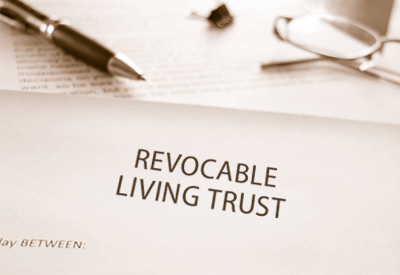Estate planning provides plenty of strategies for avoiding probate, but one approach — pre-death gifting — requires particular scrutiny due to its complex implications and potential pitfalls. While the concept of giving away assets before death might seem like a straightforward solution to avoid probate proceedings, this strategy can create severe financial, legal and health care-related complications for both givers and recipients. Before considering pre-death gifting as part of your estate plan, it's crucial to understand the multifaceted risks and consequences that could fundamentally impact your financial security, health care options and family's well-being.
What are the financial risks of giving away assets early?
The most immediate danger of pre-death gifting lies in compromising the giver's financial security. By transferring assets early, individuals often lose access to resources they may desperately need for unexpected medical expenses or long-term care. This loss of financial flexibility during retirement can be devastating, particularly when emergency situations arise. Many people underestimate their future financial needs and the importance of maintaining control over their assets throughout their later years.
Consider the case of Robert, a 70-year-old retiree who gifted his $400,000 home to his children while retaining a life estate. Within three years, he developed severe health problems requiring specialized care not covered by Medicare. Without the ability to sell or mortgage his home, he struggled to fund his medical expenses and ultimately had to rely on his children for financial support — creating exactly the kind of burden he had hoped to prevent.
The risks of premature gifting extend far beyond medical emergencies. Inflation can erode the purchasing power of retained assets, making what seemed like adequate reserves insufficient for future needs. The rising costs of everyday expenses, from utilities to food, can strain fixed incomes, particularly when valuable assets have been gifted away. Additionally, market downturns can dramatically impact retirement accounts, making other assets crucial for financial security.
Long-term care costs present perhaps the most significant financial risk. The average annual cost of a private room in a nursing home exceeds $100,000, and these costs continue to rise faster than inflation. Without adequate assets, individuals may find themselves with limited choices for care or dependent on Medicaid, which could restrict their options for facilities and treatments.
Beyond health care concerns, early gifting can impact quality of life in unexpected ways:
- Home maintenance and repairs become challenging without adequate resources.
- The ability to relocate to more suitable housing is compromised.
- Emergency expenses become insurmountable without access to assets.
- Investment opportunities for growing wealth are limited.
- The capacity to help family members in crisis is reduced.
- Financial independence and dignity may be compromised.
- Options for senior living facilities become limited.
Financial professionals often recommend maintaining control over assets through more flexible estate planning tools, such as revocable trusts, which provide probate avoidance benefits without surrendering access to assets.


How can gifting impact Medicaid eligibility?
Perhaps the most severe consequence of pre-death gifting involves Medicaid eligibility. Many people don't realize that Medicaid implements a five-year look-back period that scrutinizes asset transfers. Gifts made within this period can trigger lengthy Medicaid disqualification periods, with the penalty period beginning only when the person would otherwise qualify for Medicaid. Even relatively small gifts can affect eligibility if given during the look-back period, and recipients may be legally required to return gifts to help the giver qualify for Medicaid.
Understanding the mechanics of Medicaid's gifting penalties requires examining a real-world example. Consider Martha, who gifted her $300,000 home to her children in 2023, then needed nursing home care in 2024. In her state, where the average monthly nursing home cost (the "penalty divisor") is $10,000, this gift created a 30-month penalty period. Most critically, this penalty didn't begin until Martha had spent down her remaining assets to Medicaid eligibility levels — leaving her with no way to pay for care during the penalty period.
The five-year look-back period is particularly treacherous because it captures all transfers for less than fair market value, including:
- Outright gifts to family members.
- Sales of property below market value.
- Addition of names to property deeds.
- Transfers to trusts.
- Charitable donations.
- Forgiveness of debts.
- Payment for services without written agreements.
What are common gifting mistakes that impact Medicaid eligibility?

Many families make well-intentioned gifting mistakes that can severely impact Medicaid eligibility. A common misconception involves annual exclusion gifts – while the IRS allows tax-free gifts of up to $18,000 per person (2025), Medicaid doesn't recognize this exemption. These gifts, despite being tax-advantaged, still count against the five-year look-back period. For example, many grandparents jeopardize their Medicaid eligibility by helping grandchildren with college expenses, not realizing these educational gifts fall under scrutiny. The same applies to seemingly innocent financial assistance, such as contributing to a family member's home down payment or making regular donations to religious organizations. Even pattern giving, such as providing monthly support to adult children or grandchildren, can create significant Medicaid eligibility problems.
Another frequent misstep occurs when families attempt to keep assets "in the family" by selling property or other assets to relatives at below-market prices – Medicaid considers the difference between the sale price and fair market value as a gift, potentially triggering penalties. These common giving patterns, while socially acceptable and often encouraged for tax purposes, can create substantial barriers to Medicaid qualification when long-term care becomes necessary.
What are tax consequences of gifting assets?
The tax implications of pre-death gifting can be far-reaching. The loss of stepped-up basis perhaps represents the most frequently overlooked tax consequence of gifting. Gift recipients can lose the valuable stepped-up basis they would receive if they inherited the property instead. This can result in significant capital gains tax consequences when they eventually sell the gifted assets.
Consider this example: A mother purchases stock for $10,000 that has appreciated to $100,000. If she gifts the stock to her son during her lifetime, he assumes her $10,000 basis. When he sells, he'll pay capital gains tax on $90,000 of appreciation. However, if he had inherited the same stock after her death, his basis would "step up" to the fair market value at her death ($100,000), potentially saving thousands in capital gains tax.
For more affluent families, the federal estate tax is a consideration. Though the lifetime federal gift and estate tax exemption ($13.99 million in 2025) means most people won't actually pay federal estate taxes, proper reporting remains crucial for tax compliance. Some states have their own estate taxes, and much lower exemption amounts, adding another layer of complexity.
Meanwhile, income tax implications can arise in unexpected ways. For instance, gifting income-producing assets might shift the tax burden to recipients in lower tax brackets, but it could also affect college financial aid, Social Security benefits or other income-based programs. Additionally, gifting appreciated property to cover someone's expenses might trigger both gift tax reporting requirements and income tax consequences.
What are some alternatives to pre-death gifting?

Rather than relying on outright gifting, several more sophisticated estate planning tools can achieve probate avoidance goals while maintaining protection. Revocable living trusts, limited liability companies, family limited partnerships and irrevocable trusts with retained powers can offer better solutions. These alternatives provide greater control and protection while still achieving estate planning objectives.
Conclusion
Pre-death gifting, while seemingly an attractive strategy for probate avoidance, carries substantial risks that often outweigh its potential benefits. From compromising financial security and health care options to triggering tax complications and Medicaid penalties, the consequences of premature asset transfers can be severe and far-reaching. Instead of relying on outright gifting, consider working with qualified estate planning professionals to explore more flexible alternatives to help achieve your probate avoidance goals while maintaining necessary control over your assets and protecting your long-term financial security. Remember, effective estate planning isn't just about avoiding probate—it's about ensuring both your current needs and future legacy are properly protected.



